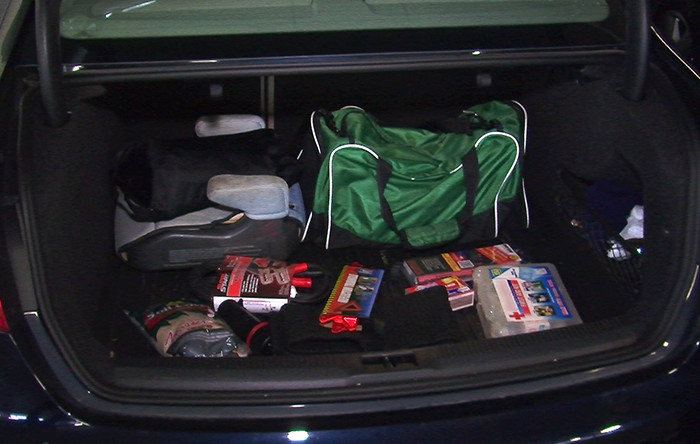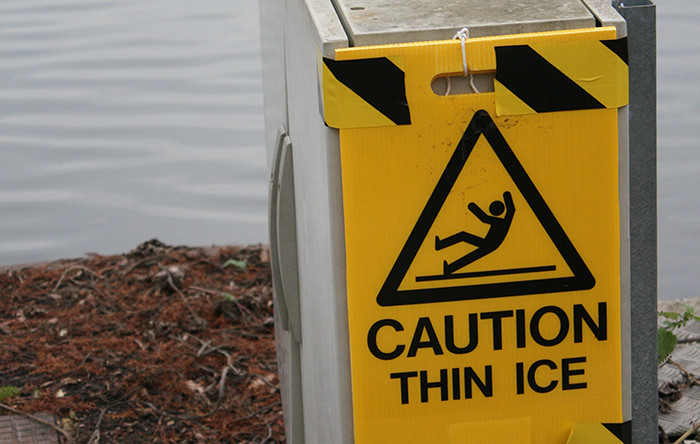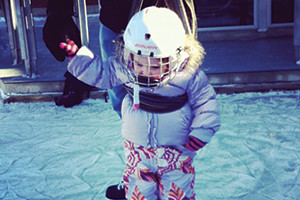Winter brings fun and frosty days building snowmen, sipping hot chocolate, and going sledding. But it can also be a season of treacherous roads, carbon monoxide poisoning, and brutally cold wind chills. It’s important to be prepared for the colder months, and following these winter safety tips that can keep your family safe this season.
As fall turns to winter, you’ll want to be diligent, making sure your home, car, and the outdoors are safe for your family. Prepare and protect your family from carbon monoxide emergencies, winter car troubles, outdoor dangers, and home heating mistakes.
- Prevent carbon monoxide poisoning
Carbon monoxide, or “CO” is a colorless, odorless gas that can kill or seriously injure with little or no warning. When you burn woodstoves, lanterns, grills, furnaces, small engines, and gas ranges in areas that aren’t well ventilated, the gas can build up and become dangerous to breathe.
The symptoms of CO poisoning include headache, shortness of breath, fatigue, nausea, vomiting, confusion, chest pain, and dizziness. Carbon monoxide is also a killer, responsible for about 400 deaths in the U.S. each year.
How do you protect your family from this unseen danger?
- Make sure you have carbon monoxide detectors in your home, and that the batteries are fresh.
- Learn the symptoms of carbon monoxide poisoning.
- If you suspect a carbon monoxide leak, or the detector sounds, take your family and pets outside immediately, and call 911.
Read more from the U.S. Fire administration on the dangers of carbon monoxide.
- Prepare your car for the winter months
You use your car to get to work, pick the kids up from school, go to the grocery store, and so much more. But snow, sleet, and freezing rain happen. How can you ensure your car is safe, even in winter’s wildest weather?
Using these winter safety tips, prepare your car now—before the first snowflakes fly—to weather the stormy season ahead:
- Change washer fluid to a winter formula
- Don’t run on empty. Keep your gas tank full so ice doesn’t form in the fuel lines or tank
- Service your car’s radiator and maintain the antifreeze level
- Change to all-season or snow tires
- Keep an emergency kit in your car with items like blankets, food, water, sandbags or kitty litter for traction, maps, a compass, a first aid kit, flashlights and batteries, booster cables, flares, a tire pump.

If you’re planning any family road trips during your kids’ winter break, read these 5 car safety tips for traveling with kids.
- Learn safety precautions to follow outdoors
Let’s face it, as nice as it is to sit inside by a roaring fire on a winter’s day, it’s also necessary (or just fun) to get out into the winter elements. But ice, snow, wind, and other conditions can pose a hazard.
When heading outdoors to do work, or for recreation, follow these safety tips:
- Use sand, snow melt, or kitty litter on driveways, sidewalks, and walkways, or wherever you see patches of ice that someone could slip on.
- Check the wind chill. It might be colder outside than the thermometer alone says. Cover any exposed skin on really windy days.
- Take your time doing chores outside, and dress appropriately. Wear layers you can take off to prevent overheating, or add if you get cold.
- When taking part in outdoor recreation, do it with a buddy, never alone. Also take an emergency kit with you, especially when going off the beaten path.
- Always carry a cell phone on your person so that help is just a phone call away.

Want to be extra prepared for bad weather? Read these 20 storm survival tips every parent should know.
- Heat your home safely
As the temperatures drop, it’s time to crank up the thermostat, space heater, or woodstove to get some heat going in your house. But heat sources can pose a safety threat if they aren’t used correctly. Make sure your fireplace and heaters and space heaters aren’t putting you in danger this winter.
A) Fireplace safety
Before the start of winter, have your chimney cleaned and inspected. Do it yearly, as creosote buildup in the chimney can cause fire. Also be careful about what you burn. Stick to wood, or whatever you use to fuel your fireplace or woodstove. Never burn trash, debris, cardboard, or flammable liquids in the fireplace, lest you start a chimney fire, or send sparks or thick smoke into the room. Fireplace screens are a good way to protect your carpets, wood flooring, and even yourself, from errant sparks.
B) Portable heaters and space heaters
Place your portable heater or space heater smartly in the room you are using it in. This means keeping it at least three feet away from clothing, furniture, holiday trees or decorations, and anything else that could catch fire. Also, never use a heater to dry wet clothing.
Heaters can pose a danger to children and pets, so never leave one running in a room where Junior or Fido are playing unattended.
A good rule of thumb is: if you leave a room, always turn the heater off. This holds true for bedtime—never run a portable heater while you sleep.
Use these winter safety tips and you’ll stay warm and secure until spring arrives. Another thing to consider this winter is making sure your home is safe from intruders. Check out these 10 holiday burglary prevention tips.


